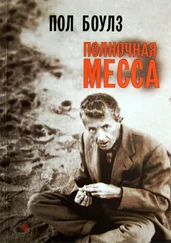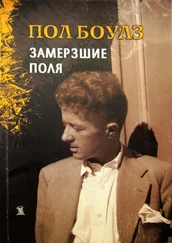Пол Боулз - Let it come down
Здесь есть возможность читать онлайн «Пол Боулз - Let it come down» весь текст электронной книги совершенно бесплатно (целиком полную версию без сокращений). В некоторых случаях можно слушать аудио, скачать через торрент в формате fb2 и присутствует краткое содержание. ISBN: , Жанр: Современная проза, на английском языке. Описание произведения, (предисловие) а так же отзывы посетителей доступны на портале библиотеки ЛибКат.
- Название:Let it come down
- Автор:
- Жанр:
- Год:неизвестен
- ISBN:1-931082-19-7
- Рейтинг книги:5 / 5. Голосов: 1
-
Избранное:Добавить в избранное
- Отзывы:
-
Ваша оценка:
- 100
- 1
- 2
- 3
- 4
- 5
Let it come down: краткое содержание, описание и аннотация
Предлагаем к чтению аннотацию, описание, краткое содержание или предисловие (зависит от того, что написал сам автор книги «Let it come down»). Если вы не нашли необходимую информацию о книге — напишите в комментариях, мы постараемся отыскать её.
Let it come down — читать онлайн бесплатно полную книгу (весь текст) целиком
Ниже представлен текст книги, разбитый по страницам. Система сохранения места последней прочитанной страницы, позволяет с удобством читать онлайн бесплатно книгу «Let it come down», без необходимости каждый раз заново искать на чём Вы остановились. Поставьте закладку, и сможете в любой момент перейти на страницу, на которой закончили чтение.
Интервал:
Закладка:
That was the worst part of being married, unless one had money — a man could never be alone in his own house; there was always female flesh in front of him, and when he had had enough of it he did not want to be continually reminded of it. « Yah latif !» he yelled. «At least shut the door!» In the next room the baby started to cry. Thami waited a moment to see what Kinza was going to do. She neither closed the door nor went to comfort her son. «Go and see what he wants!» he roared. Then he groaned: « Al-lah !» and put a cushion over his abdomen, locking his hands on top of it, in the hope of having an after-dinner nap. If it were not for his son, he reflected, he would send her back where she belonged to her family in the Rif. That might pave the way, at least, to his being taken back by his brothers and permitted to live with them again.
He had never considered it just of Abdelmalek and Hassan to have taken it upon themselves to put him out of the house. Being younger than they, he had of course to accept their dictum. But certainly he had not accepted it with good grace. It was typical of him to consider that they had acted out of sheer spite, and he behaved accordingly. He committed the unpardonable offense of speaking against them to others, dwelling upon their miserliness and their lecherousness; this trait had gradually estranged him from practically all his childhood friends. Everyone knew he drank and had done so since the age of fifteen, and although that was generally considered in the upper-class Moslem world of Tangier sufficient grounds for his having been asked to leave the Beidaoui residence, still, in itself it would not have turned his friends against him. The trouble was that Thami had a genius for doing the wrong thing; it was as if he took a perverse and bitter delight in cutting himself off from all he had ever known, in making himself utterly miserable. His senseless marriage with an illiterate mountain girl — surely he had done that only in a spirit of revenge against his brothers. He must certainly have been mocking them when he rented the squalid little house in Emsallah, where only laborers and servants lived. Not only did he take alcohol, but he had recently begun to do it publicly, on the terraces of the cafés in the Zoco Chico. His brothers had even heard, although how much truth lay in the report they did not know, that he had been seen going on numerous trips by train to Casablanca, an activity which usually meant only one thing: smuggling of one sort or another.
Thami’s friends now were of recent cultivation, and the relationships between him and them not particularly profound ones. Two were professors at the Lycée Français, ardent nationalists who never missed an opportunity during a conversation to excoriate the French, and threw about terms like «imperialist domination,» «Pan-Islamic culture» and «autonomy». Their violence and resentment against the abuses of an unjust authority struck a sympathetic chord in him; he felt like one of them without really understanding what they were talking about. It was they who had given him the idea of making the frequent trips to the French Zone and (—for it was perfectly true: he had been engaging in petty smuggling —) carrying through with him fountain pens and wrist watches to sell there at a good profit. Every franc out of which the French customs could be cheated, they argued, was another nail in the French economic coffin; in the end the followers of Lyautey would be forced to abandon Morocco. There were also the extra thousands of francs which it was agreeable to have in his wallet at the end of such a journey.
Another friend was a functionary in the Municipalité. He too approved of smuggling, but on moral grounds, because it was important to insist on the oneness of Morocco, to refuse to accept the three zones into which the Europeans had arbitrarily divided it. The important point with regard to Europeans, he claimed, was to sow chaos within their institutions and confuse them with seemingly irrational behavior. As to the Moslems, they must be made conscious of their shame and suffering. He frequently visited his family in Rabat, always carrying with him a large bunch of bananas, which were a good deal cheaper in Tangier. When the train arrived at Souk el Arba the customs officers would pounce on the fruit, whereupon he would begin to shout in as loud a voice as possible that he was taking the bananas to his sick child. The officers, taking note of the growing interest in the scene on the part of the other native passengers, would lower their voices and try to keep the altercation as private and friendly as they could. He, speaking excellent French, would be polite in his language but noisy in his protest, and if it looked at any point as though the inspectors might be going to placate him and let the bananas by, he would slip into his speech some tiny expression of defiant insult, imperceptible to the other passengers but certain to throw the Frenchmen into a fury. They would demand that he give up the bananas then and there. At this point he would appear to be making a sudden decision; he would pick up the bunch by the stem and break the fruit off one by one, calling to the fourth-class passengers, mostly simple Berbers, to come and eat, saying sadly that since his sick son was not to have the bananas he wanted to give them to his countrymen. Thus forty or fifty white-robed men would be crouching along the platform munching on bananas, shaking their heads with pity for the father of the sick boy, and turning their wide accusing eyes toward the Frenchmen. The only trouble was that the number of customs inspectors was rather limited. They all had fallen into the trap again and again, but now they remembered the functionary only too well, and the last time he had gone through they had steadfasdy refused to notice the bananas at all. When Thami heard this he said: «So you went through to Rabat with them?» «Yes,» said the other a little dejectedly. «That’s wonderful,» said Thami with enthusiasm. The functionary looked at him. «Of course!» Thami cried. «You broke the law. They knew it. They didn’t dare do anything. You’ve won». «I suppose that’s true,» said the other after a moment, but he was not sure Thami understood what it was all about.
Thami opened his eyes. It was five minutes later, although he thought it was an hour or more. She had taken the lamp; the room was in darkness. The patio door was open, and through it he could hear the splatter of rain on the tiles. Then he realized that the baby was still crying, wearily, pitifully. « Inaal din » — he said savagely under his breath. He jumped up in the dark, slid his feet into his slippers, and stumbled out into the wet.
The lamp was in the next room. Kinza had picked the baby up and was holding him clumsily while she prepared to nurse him. The blood still ran down her face and was dripping slowly, regularly, from the end of her chin. It had fallen in several places on the baby’s clothing. Thami stepped nearer. As he did so, he saw a drop of blood fall square in the infant’s face, just above his lips. A cautious tongue crept out and licked it in. Thami was beside himself. « Hachouma !» he cried, seizing the baby and holding it out of her reach so that it began to scream in earnest. He laid it carefully on the floor, got an old handkerchief, stood in the doorway for a moment with his hand out in the rain, and when the cloth was soaked, he threw it to her. She had let blood drip over everything: the matting, the cushions, the floor, the brass tray on the tea table, and even, he noted with a shiver of disgust, into one of the tea glasses. He picked up the tiny glass and threw it outside, heard it smash and tinkle. Now he wanted to get out of the house. At each moment it seemed to be raining harder. So much the worse, he thought. He would go anyway. He pulled his raincoat down from the nail where it hung, put on his shoes, and without saying a word, went out the door into the street. Only when he had shut it behind him did he notice that there was a violent wind to accompany the downpour.
Читать дальшеИнтервал:
Закладка:
Похожие книги на «Let it come down»
Представляем Вашему вниманию похожие книги на «Let it come down» списком для выбора. Мы отобрали схожую по названию и смыслу литературу в надежде предоставить читателям больше вариантов отыскать новые, интересные, ещё непрочитанные произведения.
Обсуждение, отзывы о книге «Let it come down» и просто собственные мнения читателей. Оставьте ваши комментарии, напишите, что Вы думаете о произведении, его смысле или главных героях. Укажите что конкретно понравилось, а что нет, и почему Вы так считаете.









